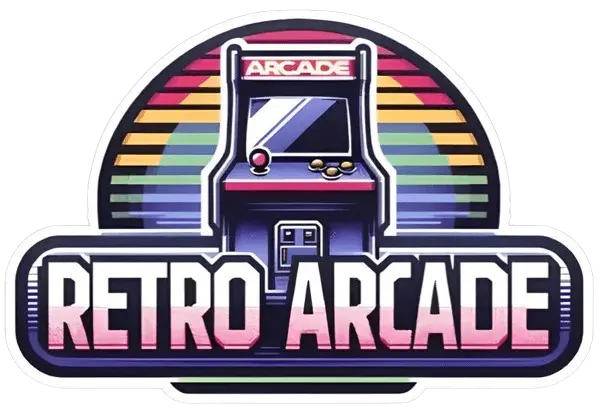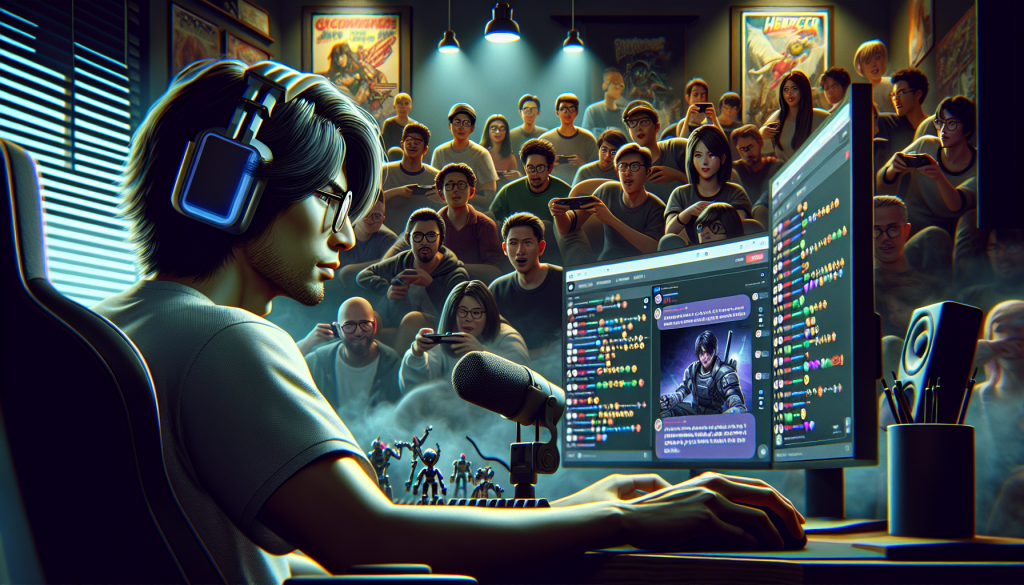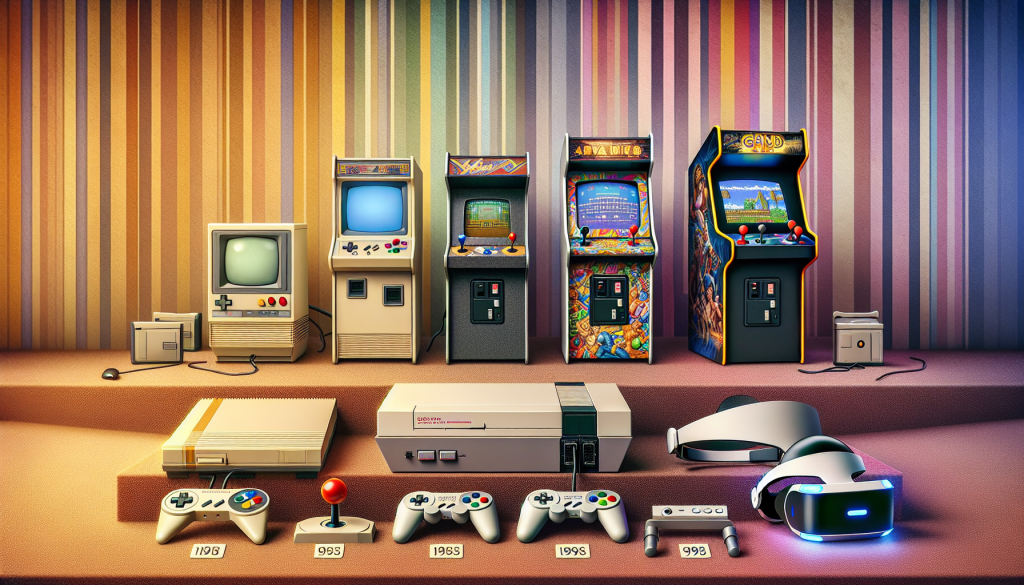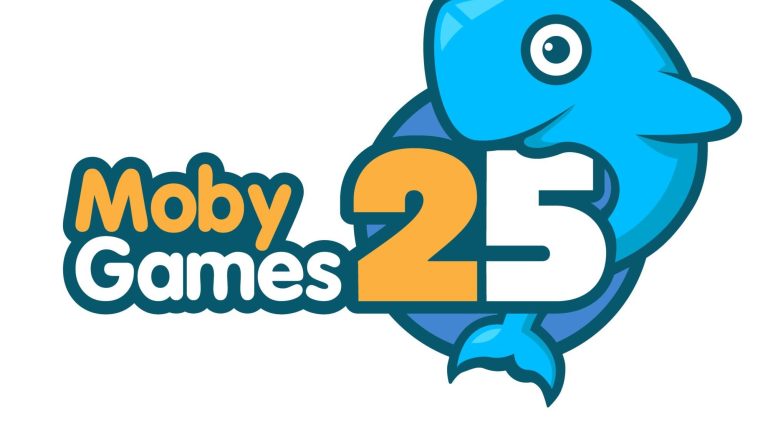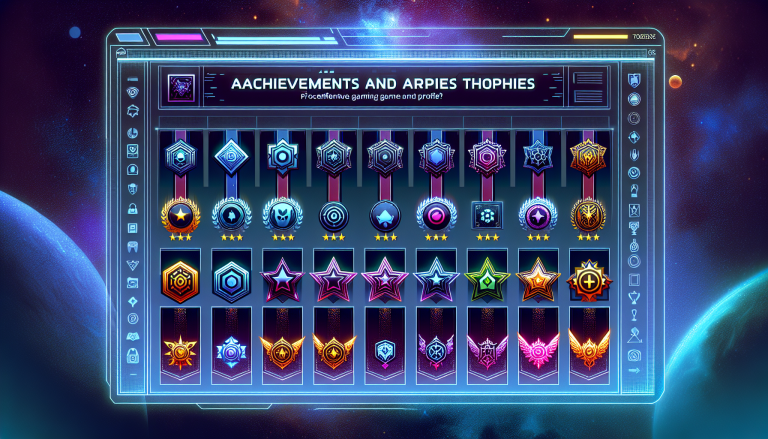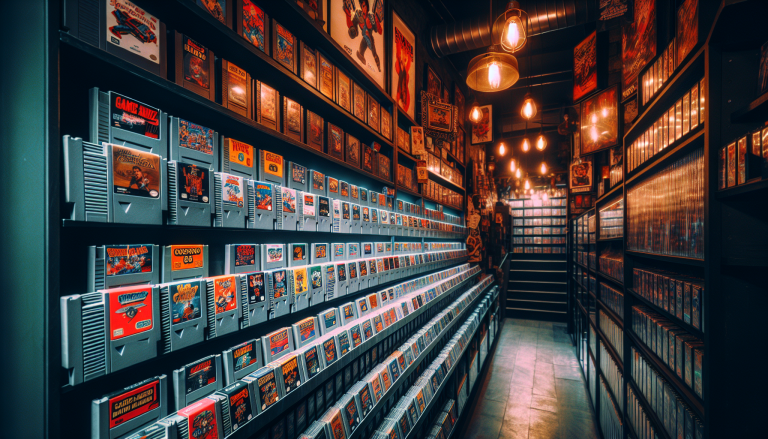Have you ever wondered about the social dynamics that exist within Massively Multiplayer Online Role-Playing Games (MMORPGs)? If you’re an avid gamer, you might have found yourself asking questions like, “Why do certain players always seem to be at the center of in-game activities?” or “What forms of social behaviors are considered acceptable (or unacceptable) in these virtual communities?” If these questions have piqued your interest, then you’re in the right place!
What Makes MMORPGs Unique?
Unlike traditional video games, MMORPGs create a virtual world where players can interact with thousands of others from all over the globe. It’s not just about completing quests and defeating monsters – it’s also about forming alliances, establishing guilds, and building communities. In other words, it is a game of social interaction just as much as it is a game of skill and strategy.
The Virtual Society
Within MMORPGs exist complex virtual societies that mirror aspects of our real-world societies. Players form relationships, establish professions, and even shape political systems within the game. There is a dynamic ecosystem of players who each have their roles and responsibilities, making the game much more than a mere pastime activity.
- Relationships: Just like in the real world, players form friendships, rivalries, and alliances. They interact with each other on a regular basis, creating a sense of community and camaraderie.
- Professions: In many MMORPGs, players can choose to specialize in certain professions. These can include blacksmithing, alchemy, tailoring, and even fishing. This creates an economy where players trade goods and services with each other.
- Politics: Some MMORPGs feature elaborate political systems where players can hold positions of power. This can add another layer of social complexity to the game, as players vie for power and influence within the virtual community.
Understanding Player Behavior
Player behavior in MMORPGs is fascinating to observe. It’s not uncommon to see players adhering to unwritten rules and norms, showing respect to higher-level players, or even participating in in-game rituals. This behavior is indicative of the inherent social structure that exists within the game.
By understanding the sociological aspects within MMORPGs, players can get a more immersive and enjoyable gaming experience. It allows them to navigate the complex social dynamics, create meaningful relationships, and get the most out of their in-game activities. So, the next time you log into your favorite MMORPG, try observing the social cues and norms – it might just give you a whole new perspective on the game!
MMORPGs: Virtual Communities and Social Interactions
There’s a common misconception that MMORPGs (Massively Multiplayer Online Role-Playing Games) are merely a world of fantasy, teeming with elves, dwarfs, and wizards. While that’s true to some extent, there’s a whole different layer beneath the surface that’s often overlooked. The fascinating thing about MMORPGs is that they aren’t just games; they are virtual communities with unique sociocultural characteristics. And the social interactions? They’re as real and complex as the ones you’d find in your local community.
The Social Structure of MMORPGs
Virtual communities in MMORPGs aren’t too different from our traditional societies. There’s a certain structure that shapes the interactions and relationships between its members. This structure is influenced by factors such as shared objectives, group dynamics, and even in-game economics. These elements contribute towards creating a sense of community, promoting cooperation and forging enduring friendships.
- Shared objectives – Players form alliances or guilds and work together to achieve common goals. This collaboration fosters a sense of community and camaraderie, similar to how real-world teams or organizations operate.
- Group dynamics – Much like in real life, each player has a role within the group that contributes to its success. This often results in a complex web of social interactions as players negotiate their roles, manage conflicts, and strive for personal and group achievements.
- In-game economics – Many MMORPGs have intricate economies where players can trade goods and services. This economic interaction adds another layer of social complexity, with players forming alliances, competing, or even manipulating the market to their advantage.
The Role of Communication in MMORPGs’ Virtual Societies
Communication is the linchpin of any community, and MMORPGs are no exception. Players communicate using a variety of methods, such as text chat, voice chat, and even body language through their avatars. This constant interaction helps build relationships, promotes cooperation, and allows for the negotiation of social norms and rules.
Moreover, communication in MMORPGs often goes beyond the game itself. Many players form lasting friendships that extend into the real world. They connect on social media platforms, attend gaming conventions together, and sometimes even meet in person. Thus, MMORPGs are not just play spaces; they are social platforms that foster real-life connections.
So the next time you venture into the virtual world of your favorite MMORPG, take a moment to appreciate the intricate social tapestry that makes these games so engaging and immersive. Whether you’re slaying dragons or trading goods, remember that you’re part of a vibrant, dynamic community that’s as real and intricate as any you’d find in the physical world.
The Role of Identity and Gender in MMORPGs’ Virtual Societies
Let’s face it: we’ve all, at one point or another, dreamt of escaping reality to don a different persona, even if just momentarily. And in the magical world of Massively Multiplayer Online Role-Playing Games (MMORPGs), such dreams become a tangible reality. In fact, the thrill of adopting a new identity is a major part of the allure that draws millions worldwide to these virtual realms.
Creating an avatar, or a virtual representation of oneself, in an MMORPG is a complex socio-psychological process. It allows players to explore aspects of their identity, they might not feel comfortable expressing in real-life situations. Let’s delve deeper into this fascinating interplay of gender and identity within virtual societies.
Avatar Creation: The First Step to Virtual Identity
When you first join an MMORPG, you’re typically asked to create an avatar. This is more than just an aesthetic exercise; it’s your first brush with identity in the game world. This avatar becomes your identity — your face in a crowd of thousands, or perhaps, millions of players.
- Self-representation or Alter-egos: Some players prefer creating avatars that closely resemble their real-life appearances and characteristics. Others opt for a more liberating approach, creating an alter-ego or a character vastly different from their real selves.
- Experimentation and Exploration: The anonymity of the game world allows for experimentation without fear. Players may use avatars to explore facets of their identity, including gender, that they may feel hesitant to explore in real life.
Gender Roles and Stereotypes in MMORPGs
In the virtual world of MMORPGs, players have the freedom to choose the gender of their avatar, regardless of their own real-world gender. This opens up an avenue for observing and understanding how gender norms and stereotypes translate into a digital space.
- Gender Bending: A significant number of players engage in ‘gender bending’, which is choosing an avatar of a gender different from their own. This could be a medium to explore gender identity, or a strategic move to explore perceived advantages of playing a certain gender.
- Gender Stereotypes: Despite the freedom of choice, gender stereotypes often seep into MMORPGs. For example, female avatars are often designed to be more ‘attractive’ or ‘less aggressive’ than their male counterparts.
In essence, MMORPGs provide a safe playground for people to explore their identities and confront gender norms. However, like any other society, they are also not immune to existing stereotypes. In the end, these games mirror the complexities and dynamism of our real-life social interactions. Fascinating, isn’t it?
An Examination of Social Norms and Hierarchies in MMORPGs
Have you ever wondered about the hidden social structures within the virtual world of Massively Multiplayer Online Role-Playing Games (MMORPGs)? Or how these digital societies surprisingly mirror those in the real world? Today, we’re going to delve into the fascinating world of social norms and hierarchies in MMORPGs, and how they impact player interactions and experiences.
Social Norms in MMORPGs
Just like in the physical world, there are unwritten rules guiding how individuals behave within the digital societies of MMORPGs. These social norms, though often unspoken, play a critical role in maintaining order and ensuring enjoyable gaming experiences for all players.
- Etiquette: MMORPGs have their etiquette rules, from not interrupting a player during a boss fight to not spamming in the global chat. These are common courtesies that enhance the quality of the game for everyone.
- Fair Play: In most games, there’s an unwritten rule that players should compete fairly, without the use of hacks or cheats. This ensures a level playing field and makes victories more rewarding.
- Collaboration:Fulfilling individual roles within a group or guild, assisting other players, and sharing resources are examples of collaborative norms within these communities.
Hierarchies in MMORPGs
Interestingly, MMORPGs also introduce a sense of hierarchy, often determined by a player’s skill, gear, or time committed to the game. This hierarchy can influence social dynamics, impacting everything from group formations to resource allocation.
- Skill-based Hierarchies: Players with exceptional skills or abilities often command respect and may be sought after by groups or guilds for their expertise.
- Equipment-based Hierarchies: In some MMORPGs, the quality of a player’s gear can symbolize their status within the game. Those with high-quality, rare equipment often hold a higher standing in the community.
- Time-based Hierarchies: Players who spend more time playing and gaining experience can also scale the social ladder, earning them respect among other players.
These hierarchies can foster a sense of competition, rewarding players for their efforts while encouraging others to strive for improvement. However, it’s important to remember that these structures should enhance the gaming experience, not become the sole focus of your play.
So, the next time you log into your favorite MMORPG, take a moment to observe the social norms and hierarchies at play. You might just discover a whole new aspect of gaming you had previously overlooked.
